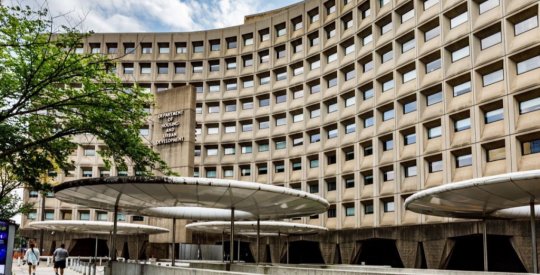On Thursday morning, credit analysts at the offices of investment bank Société Générale in New York put out their first U.S. credit strategy report that covers nearly all financial markets in the nation.
In the introductory letter they state, "We focus on forward-looking themes and trade ideas on a sector by sector basis." And for most of those sectors, things are looking up, or at least are expected to in 2011, thus the impetus for creating a regular credit report for Société Générale clients.
But in that note, the best hope for the housing industry, however, is to look at "regional pockets of strength in the Northeast and mid South," writes housing analyst George Ashur. Other than that, 2011 does not look very promising.
"The overhang of foreclosed properties held by the U.S. banking sector is estimated to be in excess of 12 million units," Ashur adds. "This volume of salable units will represent a drag on price improvement in the sector at least through the end of 2011 or until U.S. unemployment rates decline significantly."
Analytics firm Capital Economics would likely agree. Senior U.S. Economist Paul Dales is expecting growth in U.S. trade data for the fourth quarter, a day before December retail sales are released.
"Net trade is likely to have made a decent positive contribution to fourth quarter GDP growth, after having subtracted 1.6% in the third quarter," he said.
Good news for the economic recovery, but housing it seems is still being left behind.
Despite the Federal Reserve's quick-surge stimulus efforts, known as quantitative easing, the housing outlook remains in the doldrums for 2011. While in the past two years the Fed bought trillions of dollars in mortgage-backed securities, Treasurys and agency debt in an effort to spark the economy, Realtytrac is nonetheless expecting another record-breaking year for foreclosures. Housing starts also remain depressed, and the level of refinancings also appears to be trending down this year, as well.
According to TrimTabs Investment Research, the Fed’s bond buying programs have helped stock market participants, financial institutions and large companies but few others.
“Quantitative easing is supposed to produce stronger economic growth and lower unemployment,” said Madeline Schnapp, director of Macroeconomic Research at TrimTabs. “While QE1 and QE2 have worked wonders on the stock market, their impact on GDP and jobs has been anemic at best.”
Schnapp adds that 2010 monthly employment gains averaged 94,000, well short of the 150,000 needed to absorb the rate of people who are now entering the workforce. The lack of jobs means "consumers collectively have $1.1 trillion less to spend annually than in 2008," she said.
According to Pew Research data out Thursday, the job situation remains the public's primary economic concern. In a December survey of 1,500 people, 47% cited the job situation as the economic issue that worries them most; far fewer cited the federal budget deficit (19%), rising prices (15%) or problems in the financial markets (14%).
Fully 79% of the public says that jobs are difficult to find in their community. Just 14% say there are plenty of jobs available. "The perceived availability of jobs is noticeably worse than it was in February 2008, when the public saw jobs as difficult to find rather than plentiful by a 53%-to-34% margin," the research states.
Moreover, 46% of Americans say there has been a time when they or someone in their household has been without a job and looking for work.
TrimTabs is predicting that the Fed may go as far as introducing a third quantitative easing program after the second expires in June. At any rate, GDP growth of at least 3% will be necessary to balance the economy.
In which case, Capital Economics may have some good news.
"We'll firm up our fourth-quarter GDP growth forecast after December's retail sales data are released (Friday)," Dales said. "But for now it could be as good as 4%."



